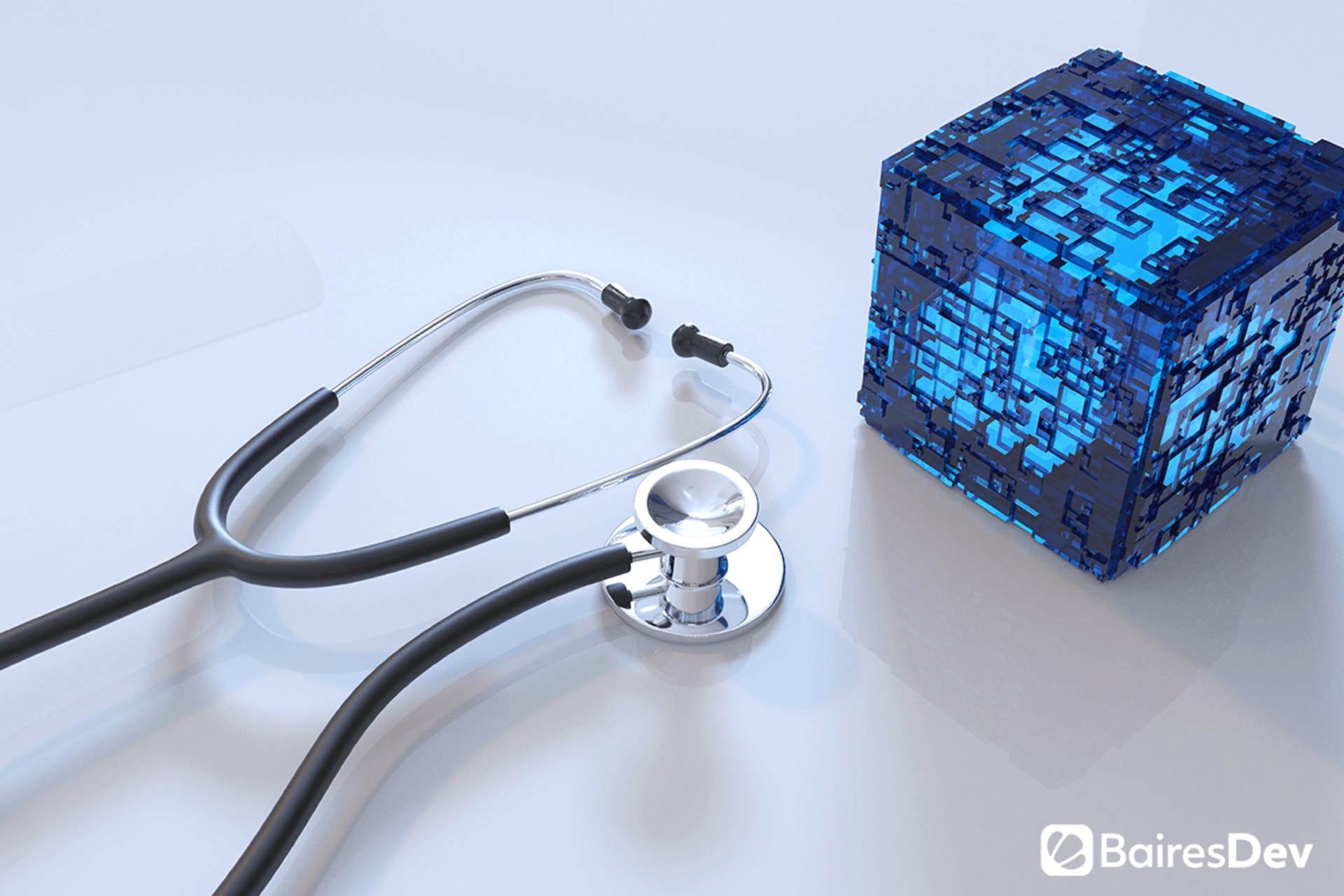For quite a long time, blockchain has been used as a synonym for cryptocurrencies (and, more particularly, for bitcoin). Understandable as that might be, seeing the decentralized ledger as nothing more than the technology that makes crypto money possible is a limited approach. Fortunately, there’s a growing interest in it and people from various industries and fields are starting to see the forest through the trees.
Blockchain is a powerful platform that can serve multiple purposes beyond monetary transactions. Sure, transactions are at the heart of blockchain, but not all transactions necessarily involve money. Basically, you can share data of any kind with cryptographic encryption in a way that ensures security, privacy, and transparency. Industries like manufacturing, entertainment, and advertising are already embracing the technology.
But one particular industry that might highly benefit from everything the blockchain has to offer is the healthcare sector. That’s because health institutions are constantly managing sensitive information, be it internally or exchanging it with one another. From dealing with patients’ personal and financial information to handling research data, the healthcare field could surely find a strategic ally in blockchain. Here’s how that would look.
Applications of Blockchain in Healthcare
Naturally, anyone with a little bit of knowledge about blockchain would think that it could be a great way to pay for medical treatments in a secure and private way. And while that’s a good use to the technology, the blockchain can go further than that. Some of the potential applications for it include:
Creation of a Global Health Network
Today, people have their head doctors and go to the same clinics, where they already have their medical history on record. If for some reason they change doctors or clinics, the new practitioner has to ask the former professional for such records to provide better treatment. Digital tools are already involved in this process – but blockchain could make it better.
By creating a global network of patient data, medical records from anyone would be instantly available to all medical practitioners. The best thing about it is that this network could cover the entire world. This would be extremely beneficial for people that have health emergencies while traveling since any medical professional could have access to the patient’s information.
And since blockchain’s main feature is that its records can’t be accessed without the proper keys, all patient information would be secure – and only available to recognized medical professionals from around the world.
Improved Medication Research
The development of new drugs could greatly benefit from the use of blockchain services. That’s because everyone involved in the process could be part of an academic network that shares knowledge about new tests and breakthroughs, boosting collaboration around the world while keeping the procedure secure.
Imagine having such a tool in the context of the current pandemic, where multiple companies and organizations from all over the planet are racing towards the creation of a vaccine. Sharing information between all those actors would be far easier with blockchain in place, and could speed up the development of the vaccine in a way that could end up saving lives.
What’s more – blockchain can be used to ensure proof of existence, document authentication, and prevention of intellectual property theft. That’s because all the information shared within it is verified and tied to a specific owner, that could be easily traceable when needed.
Enhanced Drug Traceability
Though it’s impossible to access stats given the illicit nature of the practice, drug counterfeiting is a huge problem, especially in developing countries where enforcement is more scarce. In fact, the World Health Organization estimates that 1 in 10 medical products in these countries are underdeveloped or fake.
That’s a colossal issue, as fake or underdeveloped medical products end up costing lives. Though using blockchain wouldn’t make the problem go away entirely, it could surely limit it. That’s because the network could use its authenticity and point-by-point tracking features to ensure that all drugs in circulation are legitimate.
This goes beyond the manufacturer’s capabilities of checking the route of their own medical products. It could also provide patients with the possibility to check whether the drugs they are about to buy are legitimate just by checking a number through the internet.
Combination with AI
In theory, blockchain could be combined with other cutting-edge technologies to further boost its benefits for the healthcare industry. One of the proposals comes from Tim Draper, a Wall Street investor that believes that the blockchain can be used alongside artificial intelligence to create a powerful medical platform that could serve all sorts of purposes.
Thus, AI algorithms would control the whole blockchain and conduct a smart analysis of all the information stored there. In that way, they could analyze blood or DNA samples, a patient’s medical history or any other data to see if there are problems worth warning about. This could save lives and increase the efficiency of medical treatments.
An Alliance Waiting to Happen
Though the healthcare industry is one of the most digitized out there, it still has to leverage the full power of the blockchain. It’s true that there are several applications that already make use of it and that there are some ideas to further the development of healthcare-related blockchain platforms even more. But today, the sector is still shy about blockchain technology and its applications.
There are some reasons for this. First, the technology is still growing and expanding, so we haven’t seen its maturity yet. And then, there are regulatory issues, something that’s crucial in the healthcare industry and that involves numerous actors. Using blockchain on a significant scale would need a strong regulatory framework that’s absent today.
These reasons, however, aren’t excuses for not starting to look deeper into the combination of blockchain and healthcare, an alliance waiting to happen that could surely benefit both. On one hand, blockchain could gain more notoriety and break entirely from the crypto ghetto. On the other, healthcare providers could use the benefits of the technology to improve their practices, manage them more efficiently, and save more lives.
If you enjoyed this article, be sure to check out our other articles about Blockchain Technology:






